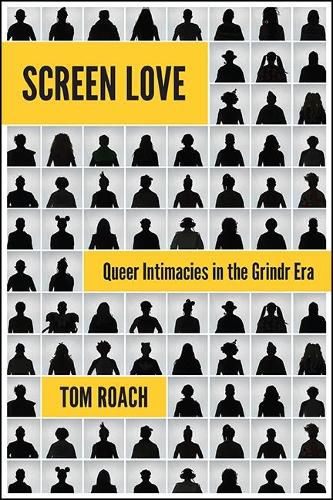Readings Newsletter
Become a Readings Member to make your shopping experience even easier.
Sign in or sign up for free!
You’re not far away from qualifying for FREE standard shipping within Australia
You’ve qualified for FREE standard shipping within Australia
The cart is loading…






In work, play, education, and even healthcare, we are using social media during COVID-19 to approximate normal life before the pandemic. In Screen Love, Tom Roach urges us to do the opposite. Rather than highlight the ways that social media might help reproduce the pre-pandemic status quo, Roach explores how Grindr and other dating/hookup apps can help us envision a radically new normal: specifically, antinormative conceptions of selfhood and community. Although these media are steeped in neoliberal relational and communicative norms, they offer opportunities to reconceive subjectivity and ethics in ways that defy normative psychological and sexual paradigms. In the virtual cruise, Roach argues, we might experience a queer sociability in which participants are formally interchangeable avatar-objects. On Grindr and other m4m platforms, a model of selfhood championed in liberal-humanist traditions-an intelligent, altruistic, eloquent, and emotionally expressive self-is often a liability. By teasing out the queer ethical and political potential of an antisocial, virtual fungibility, Roach compels readers to think twice about media typically dismissed as sordid, superficial, and narcissistic. Written for students, professors, and nonacademics alike, Screen Love is an accessible, provocative, and at times subversively funny read.
$9.00 standard shipping within Australia
FREE standard shipping within Australia for orders over $100.00
Express & International shipping calculated at checkout
In work, play, education, and even healthcare, we are using social media during COVID-19 to approximate normal life before the pandemic. In Screen Love, Tom Roach urges us to do the opposite. Rather than highlight the ways that social media might help reproduce the pre-pandemic status quo, Roach explores how Grindr and other dating/hookup apps can help us envision a radically new normal: specifically, antinormative conceptions of selfhood and community. Although these media are steeped in neoliberal relational and communicative norms, they offer opportunities to reconceive subjectivity and ethics in ways that defy normative psychological and sexual paradigms. In the virtual cruise, Roach argues, we might experience a queer sociability in which participants are formally interchangeable avatar-objects. On Grindr and other m4m platforms, a model of selfhood championed in liberal-humanist traditions-an intelligent, altruistic, eloquent, and emotionally expressive self-is often a liability. By teasing out the queer ethical and political potential of an antisocial, virtual fungibility, Roach compels readers to think twice about media typically dismissed as sordid, superficial, and narcissistic. Written for students, professors, and nonacademics alike, Screen Love is an accessible, provocative, and at times subversively funny read.